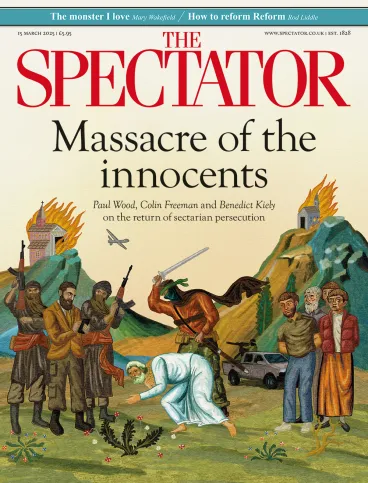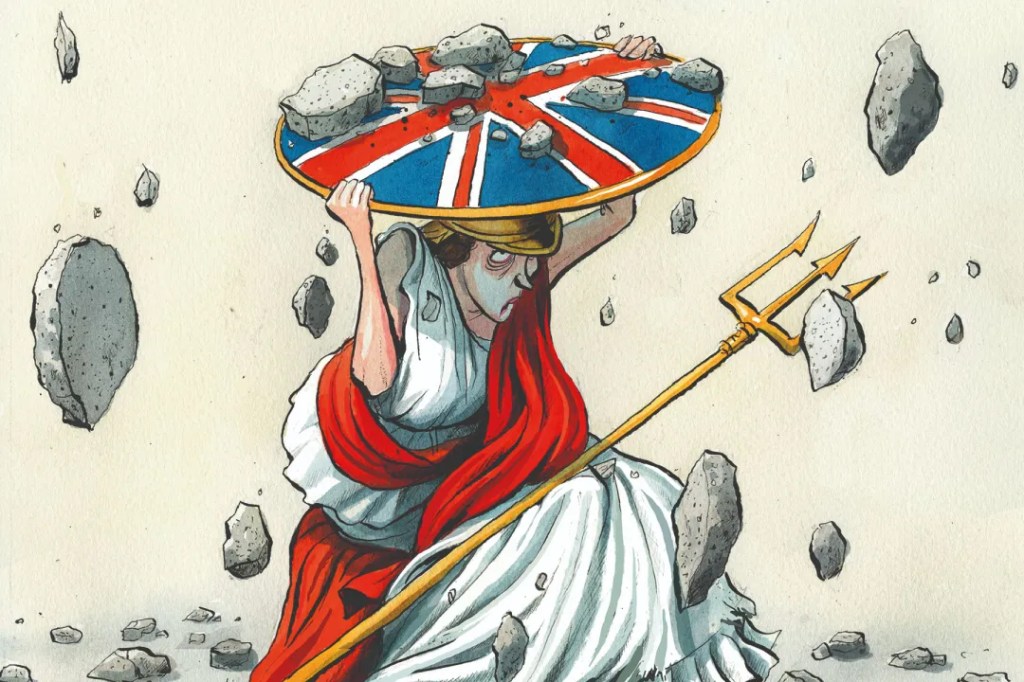
Tsundokists of the world, unite! You have a new champion in Lucy Mangan, whose follow up to her entrancing memoir of childhood reading (Bookworm) is an unabashed paean to the pleasure of acquiring more books than you could ever possibly read in your life. That does not stop Mangan from trying, and this is a whirlwind tour through her voracious, encyclopaedic adult reading habit, one that not so much offers evidence of ‘how reading shapes our lives’, but how life shapes our reading.
The ‘forced march’ of patriarchal school set texts in Mangan’s teens is relieved when she inherits a Maeve Binchy doorstopper and first encounters a book that is ‘unapologetically about women’. When postnatal depression descends, she reaches for Lee Child, finding catharsis in his no-nonsense, villain-bashing thrillers: ‘Do you know how many times a day the mother of young children longs to beat the shit out of someone?’ And after the loss of her father, grief dispatches her back, very movingly, to the comforting pages of the children’s classics he gave her.
In fact this is a book by someone for whom reading is life. Mangan takes Flaubert’s maxim ‘Read in order to live’ and runs with it. Or, rather, sits. Reading is better than conversation; curling up with a book is preferable to sociability. Like-minded readers will ‘know to the precise point how much more likely your just-begun thriller is to bring you happiness than going to the planned party this evening’. An unhappy break-up with a teenage boyfriend is even a boon because, as she explains with characteristic forthrightness: ‘You have all the time back for reading that you used to spend lying on his bed trying to avoid his penis.’
As you would expect, her love of reading is only equalled by one other great abiding passion: sourcing the stuff in the first place. ‘I am never happier than when in a bookshop,’ Mangan announces, a sentiment most avid readers would share. But for the casual high-street and airport browser, this book is also an insider’s guide to the kind of next-level tome-acquiring which, in another universe, might call for some sort of non-proliferation treaty. I thought I loved bookshops as much as a person can until I read that Mangan knew she had found her partner for life when preparing for their first holiday away together. She learns that he is in effect ‘someone who scours the internet for secondhand bookshop locations and then draws up daily timetables and maps to enable you to visit them in the most efficient manner’.
Reading is better than
conversation; curling up with a book is preferable to sociability
But perhaps we don’t need to apply for bookshop logistics training just yet to discover the trove of wonders within. One of the chief pleasures of the book is its serendipity, and, accordingly, Mangan’s most eclectic and lesser known stops on the shelf are the most diverting. I for one will be seeking out the historical fiction of Norah Lofts – ‘pulled almost at random from a shelf in the Brazen Head Bookshop in Burnham Market’. Her work is unknown by many today, I suspect, but intriguingly encapsulated by the publisher John Mitchinson ‘as Piers Plowman crossed with Cormac McCarthy’s The Road ’.
There are plenty of classics dissected, too, but here Mangan is on less compelling ground, as her readerly responses feel more like retreads of well-received views, lacking the bite and freshness of her insights elsewhere. For example: ‘Jane Austen is of course now revered as one of the wonders of the literary world… but it wasn’t always thus.’ And, reprising the plot of Gawain and the Green Knight, she explains: ‘A romance in medieval terms means something closer to an adventure.’
Mangan is phlegmatically opinionated, and god knows her epic depth and breadth of reading gives her the right, but sometimes her volleys of drive-by literary criticism miss the mark. We learn that Shakespeare is simply ‘so boring’, and that the Metaphysical poets were chiefly writing about their penises. Even in the context of a memoir of developing literary tastes, the tone jars with the capacious, nerdy embrace of bookish and diverse riches bestowed elsewhere.
As someone who has ‘always read for pleasure, never with an eye to impressing others’, Mangan is often at her best when deep diving into why ‘guilty pleasures’ are so moreishly readable, from the ‘lavish glamour and extravagant narrative hand’ of Shirley Conran’s Lace to Dan Brown’s ‘demented but brilliant’ The Da Vinci Code.
In the ‘everything everywhere all at once’ age of internet culture, just the sight of canyons of unread books can seem a hopeless prospect. But, as Mangan observes, ‘possibly the greatest of books’ virtues is patience. They will wait for us to get to them.’







Comments